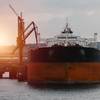As a consequence of Hanjin Shipping's financial collapse one can anticipate that there will be displaced containers worldwide with Hanjin vessels being arrested short of or at destination, being moored up or remaining outside port limits to avoid arrest or being stuck at a port short of destination with the port authority unwilling to provide port services absent payment in advance, says Clyde & Co.
One press report we have seen suggests that in excess of 500,000 TEUs already loaded on Hanjin vessels may be subject to delay.
To name but a few consequences - there may be a greater theft and port accumulation risk if cargo has to be offloaded and stored.
Temperature sensitive cargoes e.g. pharmaceuticals and/or cargoes with a short shelf life e.g. livestock or agriproducts may similarly be at greater risk. For non-perishable cargoes extra cost may have to be incurred to get the cargo to destination.
Following Hanjin obtaining a rehabilitation order protecting its assets from creditors in South Korea, the serious repercussions continue to shake global trade.
As a first step to extend the rehabilitation order's geographical reach, the Tokyo District Court in Japan issued an order recognising the South Korean Court proceedings and issued a comprehensive stay order on 5 September 2016.
Hanjin has applied for Chapter 15 protection in the US, which is likely to be granted following a hearing scheduled for 6 September 2016.
Hanjin will be taking similar steps across the globe during the course of this week where Hanjin assets, particularly owned or chartered vessels, are vulnerable to arrest and where proceedings will be commenced. It is presently estimated that Hanjin will be seeking relief in up to 40 countries.










